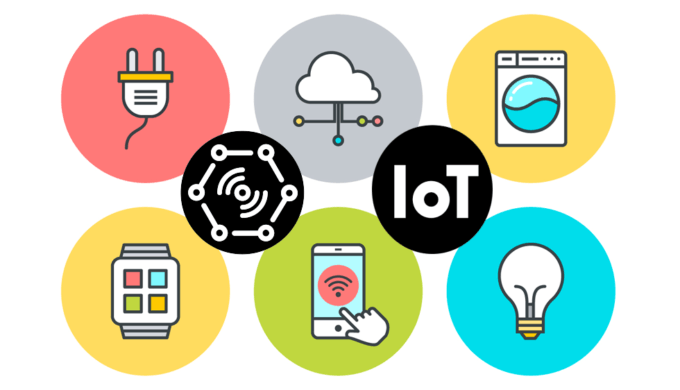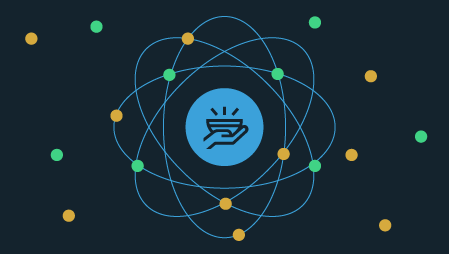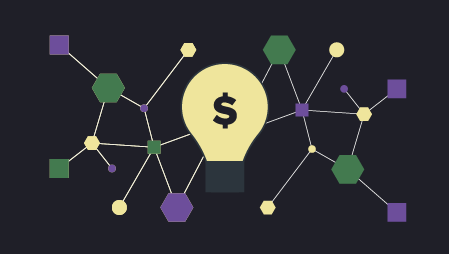The potentials that exist in the application of blockchain technology and the Internet of Things are huge. This article comes with an emphasis on network security.

IoT Illustration: threatpost.com
Blockchain technology has seen increasing adoption in recent years. It is appreciated by many people for its role as providing an underlying framework for Bitcoin cryptocurrency and other crypto assets. This has proven to be something that a lot of industries need, and its increased adoption shows a growing realization of that fact.
The IoT security challenges
The Internet of Things is all about getting and transmitting large amounts of data through systems and linkages on real-time. Since any business needs privacy and security, the major task here is to ensure the protection of all data and communication.
Now, imagine that data flows across various kinds of integrated solutions and devices, including analytics capabilities, machines, devices, and platforms. Also, the data needs to pass various administrative boundaries, with each having its own set of policies. In this case, it becomes complicated to ensure the safe functioning of an IoT system and the proper management of data.
Also, apart from just protecting data, it is important to ensure safe data delivery to the right place, form and time.
Essentially, no matter the way and manner that your company participates in the IoT ecosystem, some nitty-gritty will arise. You will need to deal with some of these IoT security challenges. Now, a good number of companies are pre-occupied with establishing the proper safeguards.
The problems of a centralized IoT network
The IoT ecosystem as seen currently is one that works on a centralized model. This means that various devices are identified, connected and verified through cloud services that provide high data storage capabilities. Even if these devices are placed two steps from each other, the Internet still serves as a conduit for information passage.
In the centralized model, businesses are made to deal with high infrastructure and maintenance costs of an integrated IoT solution.
Also, one important issue to be considered is the number of IoT devices. Just imagine how much costs will increase when it reaches millions of Internet-connected objects. The number of communications will also be increased, which will lead to issues with scalability, economics, and engineering.
In the case that these issues are overcome, another bottleneck that can disrupt the entire network is the issue of cloud services. Hence, providing security for IoT devices will be even more difficult.
Essentially, this means that if you choose to apply a centralized model to small-sized IoT solutions, savings can occur. You might not come across problems relating to scalability and maintenance costs. However, large IoT ecosystems will see these associated issues arise and find a way to resolve them. This calls for a decentralized approach.
Blockchain technology and its advantages
A blockchain is a distributed ledger that maintains a growing number of data records and transactions. While transactions are related by network participants, they are recorded in blocks. This also ensures that they are arranged in the right sequence and assigns a record timestamp when they become added.
Since blockchain technology is decentralized, there is no central authority or specific administrator is necessary. Such a structure is not responsible for approving transactions or establishing guidelines for their use. With the removal of intermediaries, the long and inconvenient banking processes can be bypassed, providing a reduction in both costs and time.
In addition, blockchain technology is based on cryptography algorithms that are designed to ensure the prevention of data distortion and ensure high security. Every block on a network has a hash to the previous block, which means that an intermediate block on the database can’t be substituted. Essentially, while a block can be extended, you can’t change it.
Today, blockchain technology investment by various sectors of the economy is rising. From the governments of the world, universities, and corporations, it would seem that more and more industries have been seeing reasons why they should invest in the technology.
Protecting IoT with a decentralized blockchain approach
One of the most important emerging trends is the amalgamation of blockchain technology and the Internet of Things.
The decentralization of an IoT network will provide it with the ability to solve a lot of its security challenges. Capabilities of the technology, including trustworthiness, decentralization, scalability, and autonomy, make it a potentially essential component of the overall IoT ecosystem
In the context of the Internet of Things, blockchain technology can be applied to ensure the successful processing of multiple transactions, the tracking, and coordination of millions of smart devices, etc.
Essentially, blockchain technology investment by the IoT industry can ensure the proper management of data at various levels.
Also, since blockchain technology is based on cryptography, its integration into IoT network s can provide additional privacy and security. Also, blockchain technology gets transactions recorded orderly and carefully. This means that the history of connected devices can be recorded.
Add this to the fact that blockchain technology works without the necessity of central authority and you will see that integration possibilities and benefits are truly endless.
Two Scenarios
Now, there are two major scenarios for using blockchain to provide IoT network security.
In the first, a company integrates its connected devices to get and transmit data, then it connects them to a blockchain network.
The technology provides the ability for smart devices to exchange messages, make orders and complete transactions.
In the second case, Ethereum smart contacts are implemented by a company in order to automate the process. This will provide seamless and safe exchanges of messages between connected devices, just as it is in blockchain-based financial transactions.
Conclusion
While the use of Bitmex signals could help quite a few make some money, the application of IoT is for global good. This is where the depth of adoption of IoT technologies can help lift humanity in many ways.
The implementation of a blockchain decentralized approach to an entire IoT network can help in many ways. It will ensure proper security by ensuring the privacy and protection of data at all levels. In addition, blockchain can help resolve scalability issues and provide an effective functioning of the system as well.
First appeared on Hackernoon.



